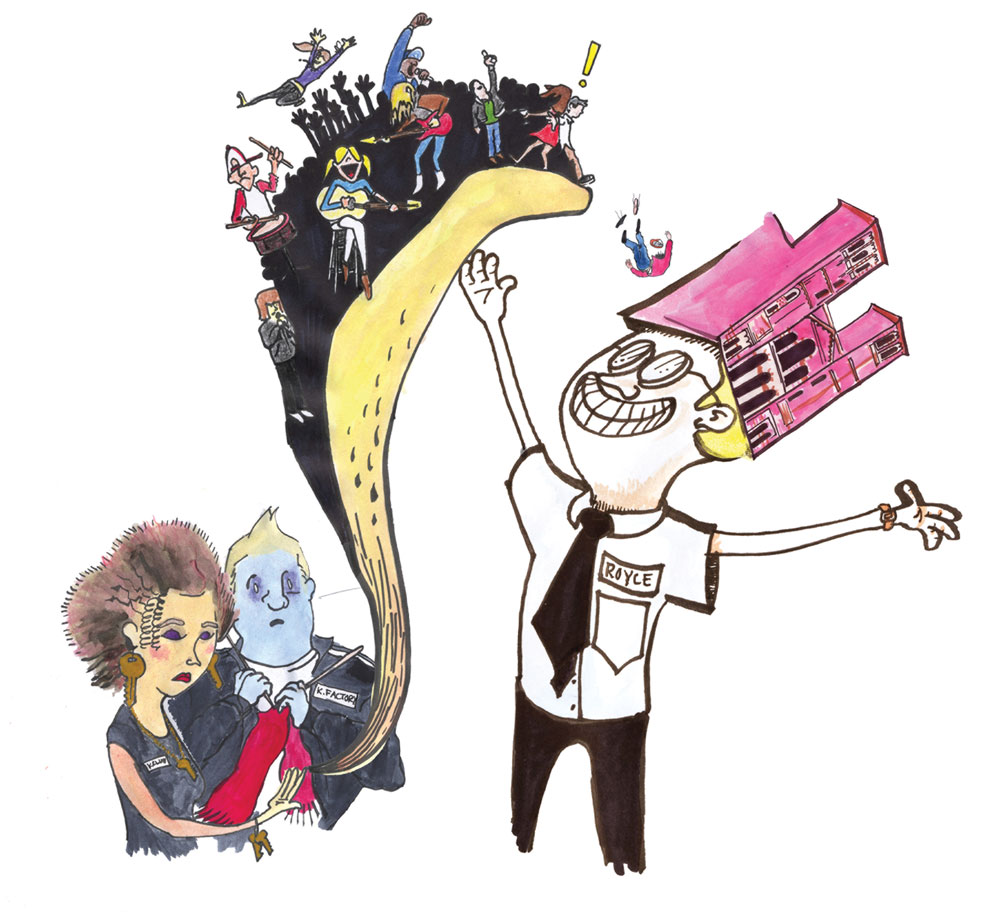The “it” factor of Sunset Strip has slowly been slipping away as venues like the Key Club and the Knitting Factory slam their doors because of poor ticket sales. The Strip has been historically known as home to some of the most celebrated music venues, including the Roxy and the Whisky a Go Go, but even these venues are susceptible to the negative economy.
The Knitting Factory closed down this past October after slowly suffering from declining prestige since its opening in 2000. The Key Club followed shortly after, clearing its calendar of performers for the months of December and onward.
Phil Rosenthal, director of marketing for UCLA Live and former employee of Live Nation and Nederlander, the concert ticket sales and promotion companies, said he believes the closures reflect a shift of local bands to different performance venues. Areas like Echo Park and Silver Lake have provided good substitutes for indie bands who are first starting out, he said.
“(The Strip) was so hot in the ’60s, ’70s and even the ’80s. … They had local musicians playing for local fans. The thing about Echo Park and downtown are that the people are there, musicians are there, they live locally, everybody’s there,” Rosenthal said. “The environment feeds the regionalism that’s pulled away from the Strip, and they’ve little by little eroded the coolness factor of the Strip, and now I don’t know if they’ll ever be able to get it back.”
Although Silver Lake and other areas are perhaps more successful at hosting local groups, the Knitting Factory did offer a more intimate feel by having two separate stages ““ the big one for well-known bands, the small for local groups.
Tracy Vahle, a UCLA alumna, attended shows at the Knitting Factory several times, and her brothers’ band also performed there. She also attended the last show hosted at the venue.
“They had two shows going on at once,” Vahle said. “With the small stage at the Knitting Factory it was more personal, it was a smaller area, and you could talk to the people who worked there. It was a really fun place to go and hang out.”
The smaller stage made it possible for lesser-famed bands to have a shot at performing at a popular venue.
“I think the Knitting Factory is kind of irreplaceable,” said Eric Mirowitz, a UCLA alumnus. “They did the live video feed between the two venues (the other in New York), and that was super cool. It was a nice place for local bands to get their start, where they could be at this well-known venue. I think that will be missed.”
The Key Club, on the other hand, offered a more up-to-date setting than the dark, run-down hotspots like the Troubadour and the Roxy, but with a wider variety of performers.
“I saw the Presidents of the United States of America at the Key Club, and I was a freshman and it was my first concert in Los Angeles, so it was very significant,” Mirowitz said. “One of the openers blew my mind. There was a guy and a girl … and the girl had a guitar with no electronics or strings. It was completely hollowed out, and there was an iPod in the guitar, and she would just press play on the track on the iPod and she would dance around with a fake guitar and the guy would sing. I had never seen anything like that before.”
UCLA Live events have not been hit as hard as the Strip, partially because the booking is considerably different from the rock venues.
“In our case, our core constituency is on the West side. It’s an audience that we’ve been nurturing for a longer period of time,” Rosenthal said. “The economy goes bad and our numbers are off just like everybody else, but we’re still speaking to the same core constituents we’ve been bringing, but staying true to the programming. We’re less susceptible to trends like that because the performing arts are a bit more stable.”
